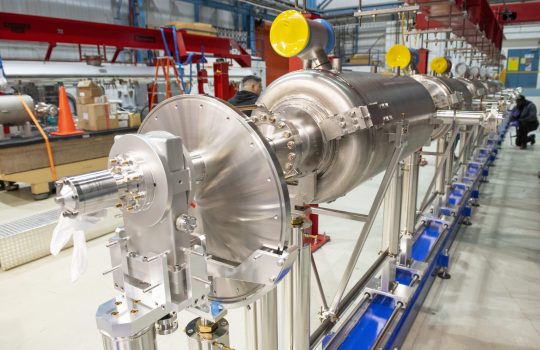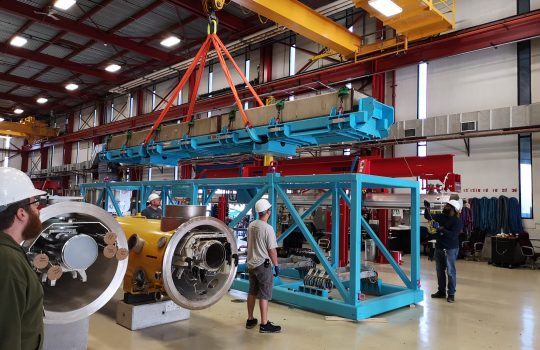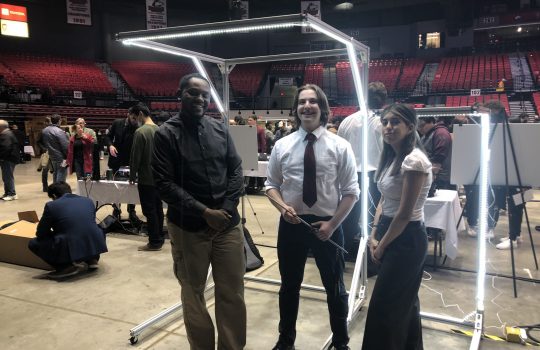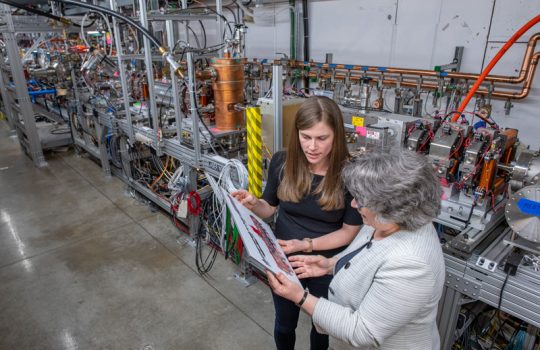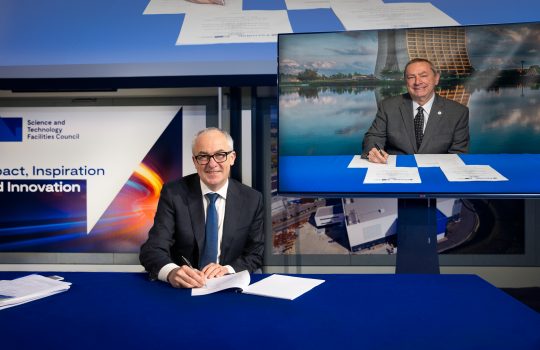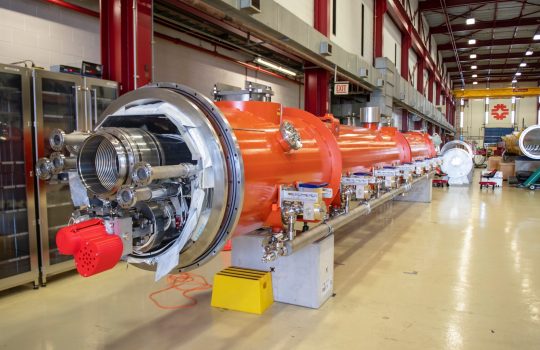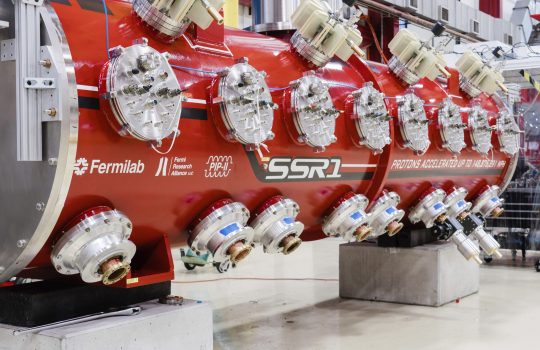Fermilab completes the first-of-its-kind prototype of a superconducting accelerator module
The 10-meter-long cryomodule, part of the PIP-II particle accelerator project at Fermilab, is now undergoing testing to validate all its components and finalize its design. In a few years, Fermilab and international partners will produce four similar cryomodules that will propel particles in the new linear accelerator.

